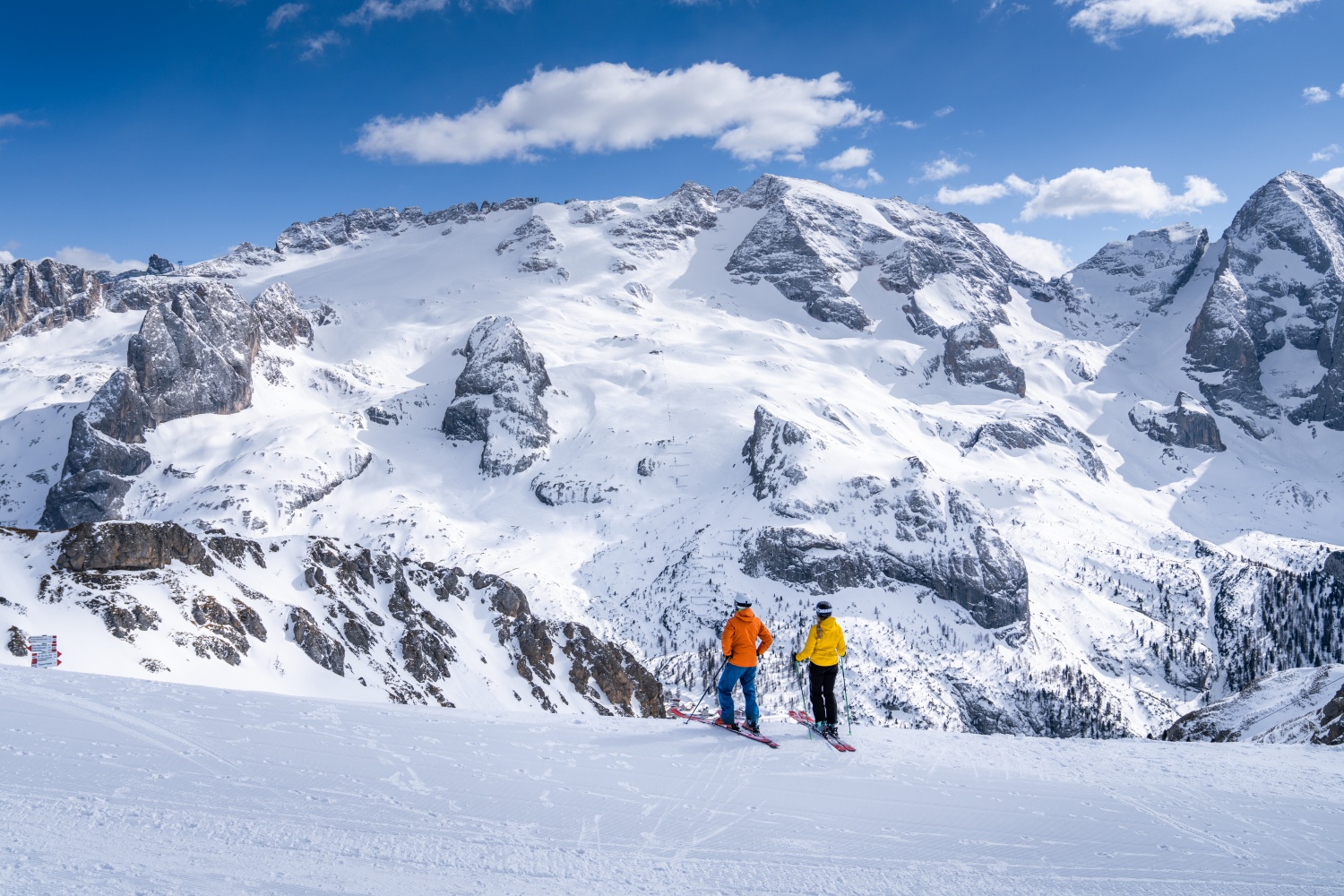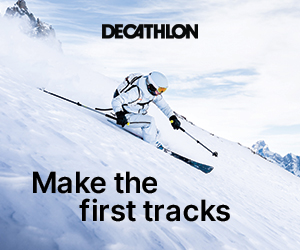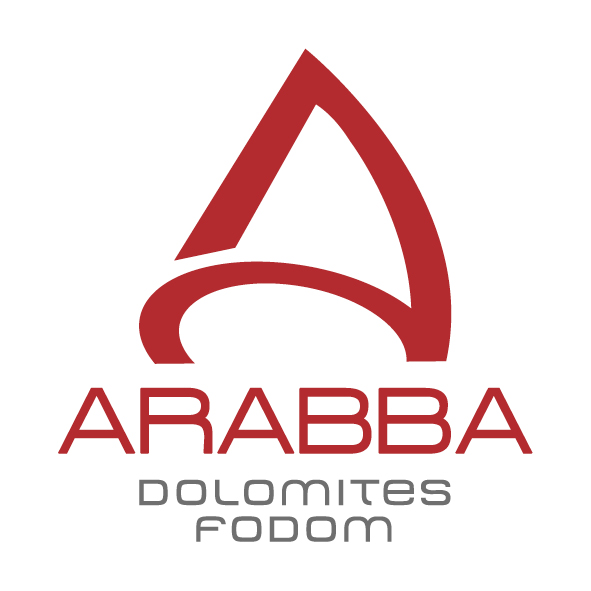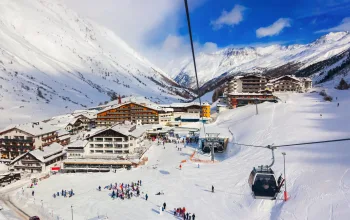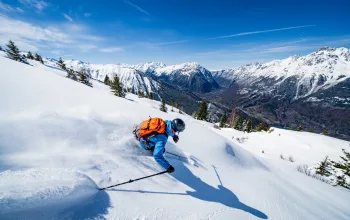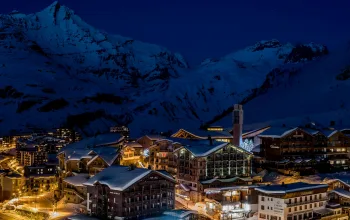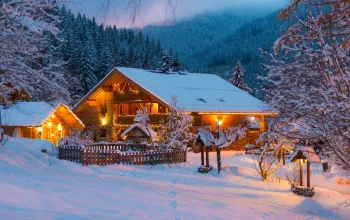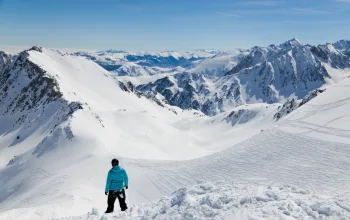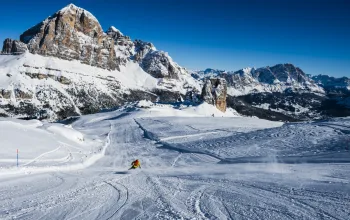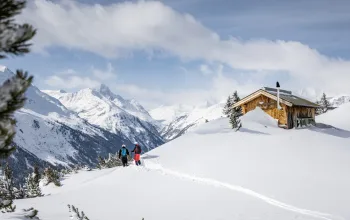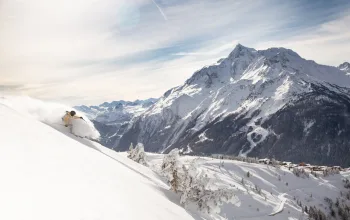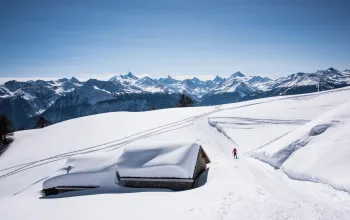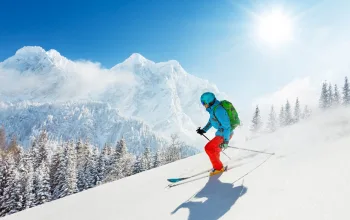Sponsored content
Arabba is a jewel in the Dolomites crown, a small, peaceful village in the heart of this stunning UNESCO World Heritage region. But Arabba or “Reba” as it was called in the local Ladin language, is also the coolest destination, the place where serious skiers go to ski!
Its runs are testing and snowsure, it offers superb access to two fantastic ski circuits - the Sellaronda and the Great War ski tour - and its local slopes are topped off by the stunning descent of the Marmolada glacier - a must-ski for every visitor.
Arabba has also preserved the Ladin culture, traditions, tales, handicrafts and values of a predominantly peasant, simple and genuine lifestyle, which today allows guests to immerse themselves in a 'world outside the world'. A cosy and characteristic village, an ideal place to enjoy clean air and unspoilt nature.
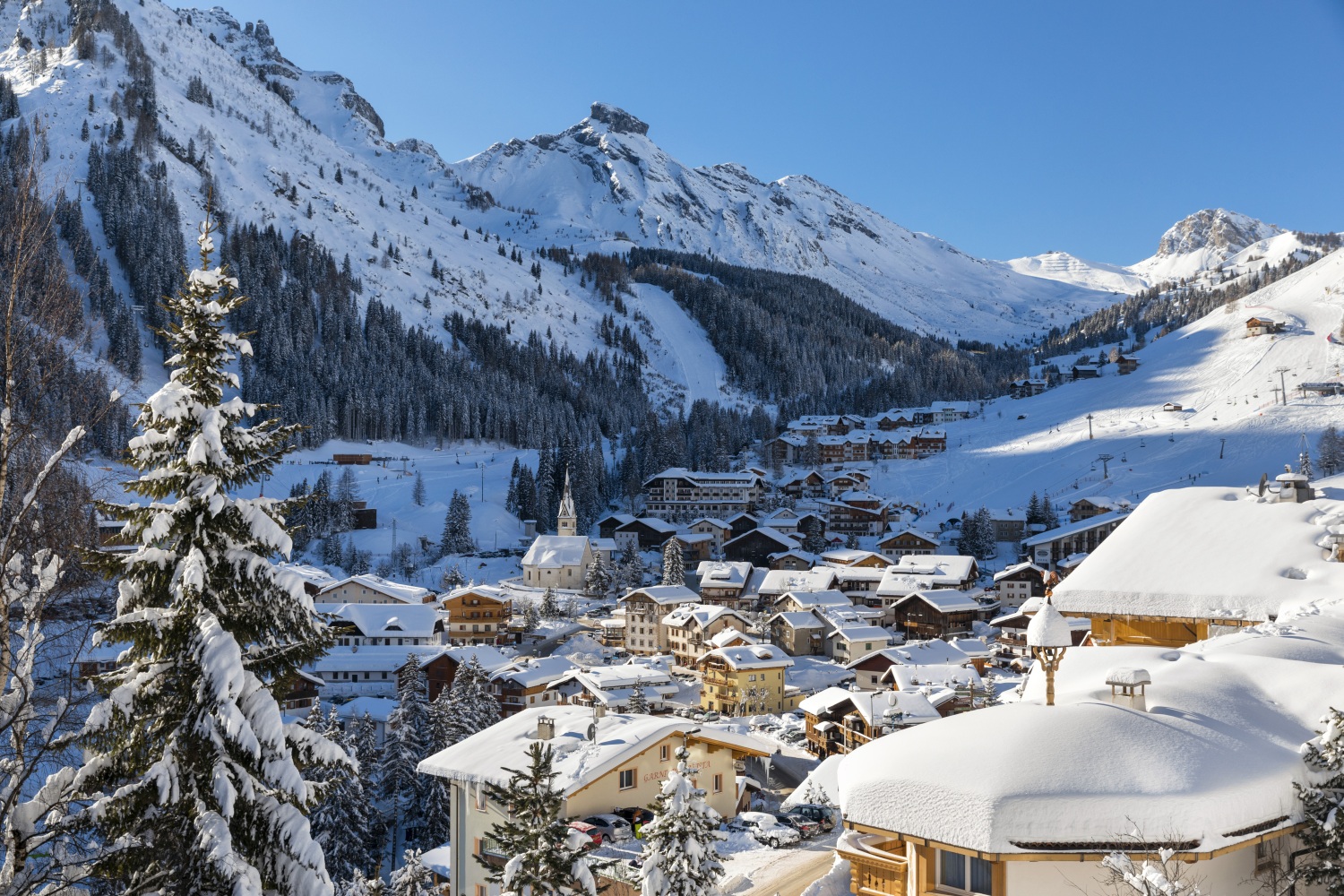
Where is Arabba ski resort?
Arabba sits at 1,602m at the foot of the Passo Pordoi and the Passo Campolongo, and is overlooked by the magnificent Sella massif around which runs the world famous Sellaronda circuit.
It is part of the municipality of Livinallongo del Col di Lana, Fodom in the local Ladin language and Buchenstein in German, one of the municipalities which belongs to the 5 Ladin valleys. Its position on the Sella circuit is between the neighbouring ski areas of Alta Badia and the Val di Fassa, both of which are readily accessible from Arabba.
The nearest airport is at Bolzano (1hr 45mins away), but most visitors fly in to Venice (3hrs), Verona (3hrs 15mins) and Innsbruck (2hrs 45mins)
Highlights of skiing in Arabba
Although there are nursery slopes below the Burz chairlift, this is not really a beginners resort, as the local slopes are mostly steeper and the popular Sellaronda runs can get busy. But for intermediates and above, this is a true playground, made even more special by the easy access to the wider Dolomiti Superski area.
But if you need to pick out one highlight, it has to be the Marmolada glacier: an out-and-back mix of chair lifts and blue/red runs takes you to the furthest edge of the ski area at Malga Ciapela, where a three-stage cable car climbs up the steep mountain side to the high-point at Punta Rocca. From the viewing platform here, the panoramic Dolomites views are out of this world, and the descent is epic.
And in the 23/24 season the skiing is even better: In the Cherz and Porta Vescovo areas of Arabba, new and improved snow canons will be used to make the resort even more snowsure, while in the Pordoi Pass area, skiers will be able to enjoy better skiing on the slopes of Pont de Vauz, with widening near the bridge over the Cordevole torrent.
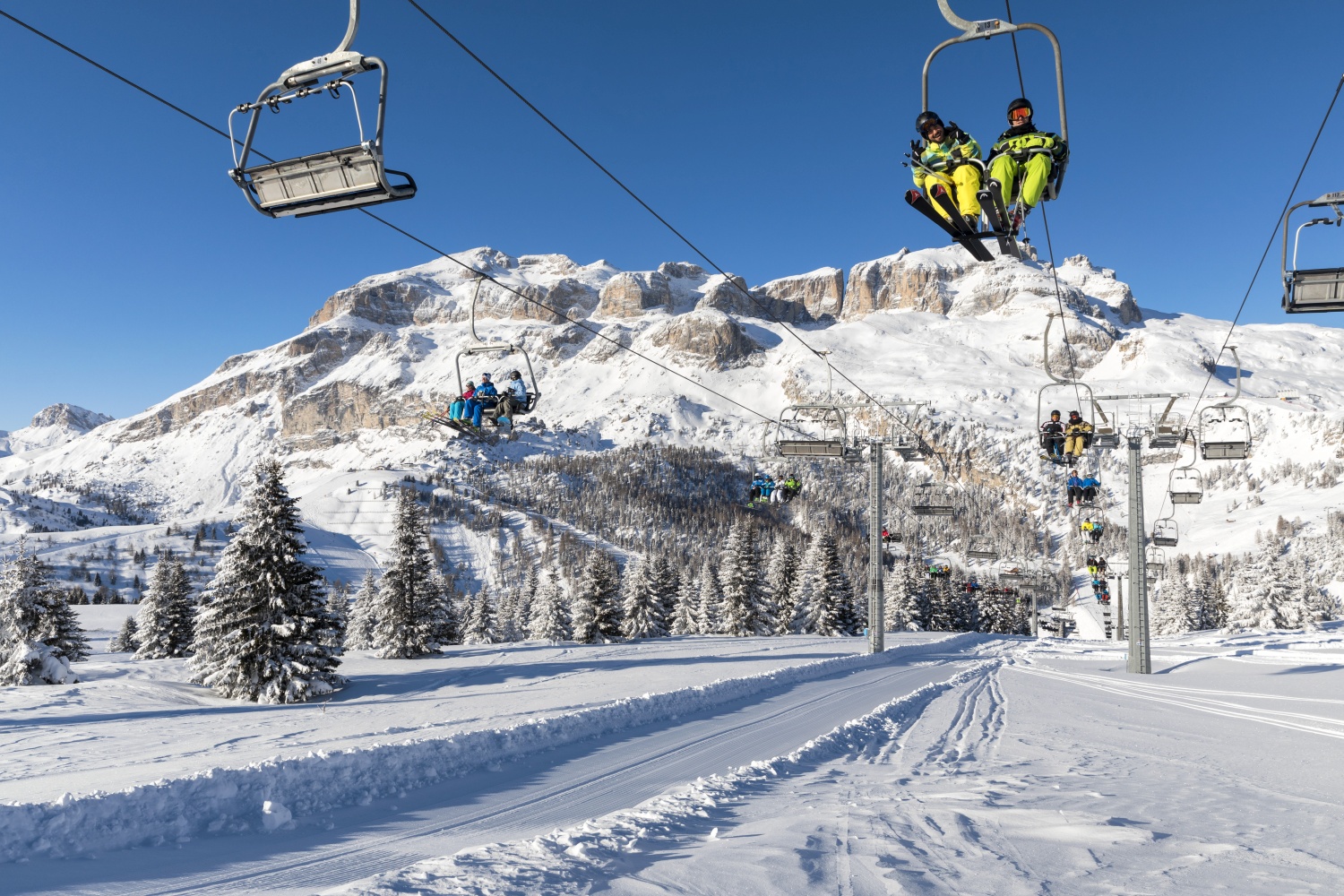
Six reasons to ski Arabba
From unforgettable runs and wonderful scenery to good value authentic local food and cherished culture - a stay in Arabba will create lasting memories. Here are six reasons to head to Arabba for your next ski holiday.
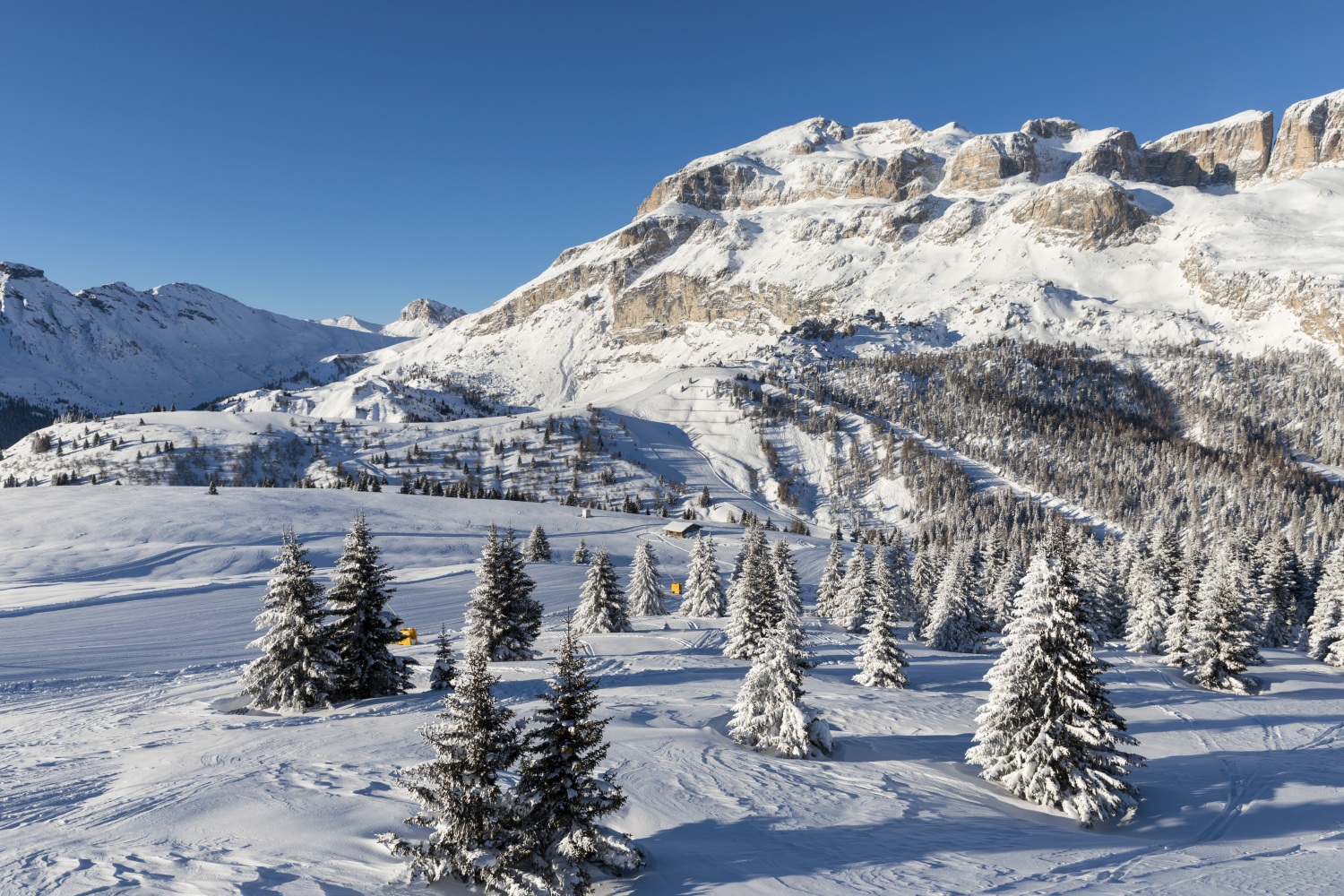
The UNESCO World Heritage surroundings of the Dolomites
It has an effect on everyone who comes here; there is just something different about skiing the Dolomites in contrast to the rest of the Alps. They are different visually - but also geologically. The Dolomites feature some of the most beautiful mountain landscapes anywhere, with vertical walls, sheer cliffs and a high density of narrow, deep and long valleys.
Geologically, the Dolomites are made of calcium carbonate and magnesium carbonate rocks, and when the sun’s rays hit these two elements at just the right angle, it turns the mountains a beautiful pinkish-red. This gives them a unique 'glow' known as 'enrosadira' (rosa is the Italian word for "pink). Twice a day, at sunrise and sunset, the peaks of the Dolomites turn a pinkish colour, then deep red and finally purple, before disappearing into the darkness of the night. Having the spectacular scenery of these peaks as the backdrop to your skiing is unforgettable.
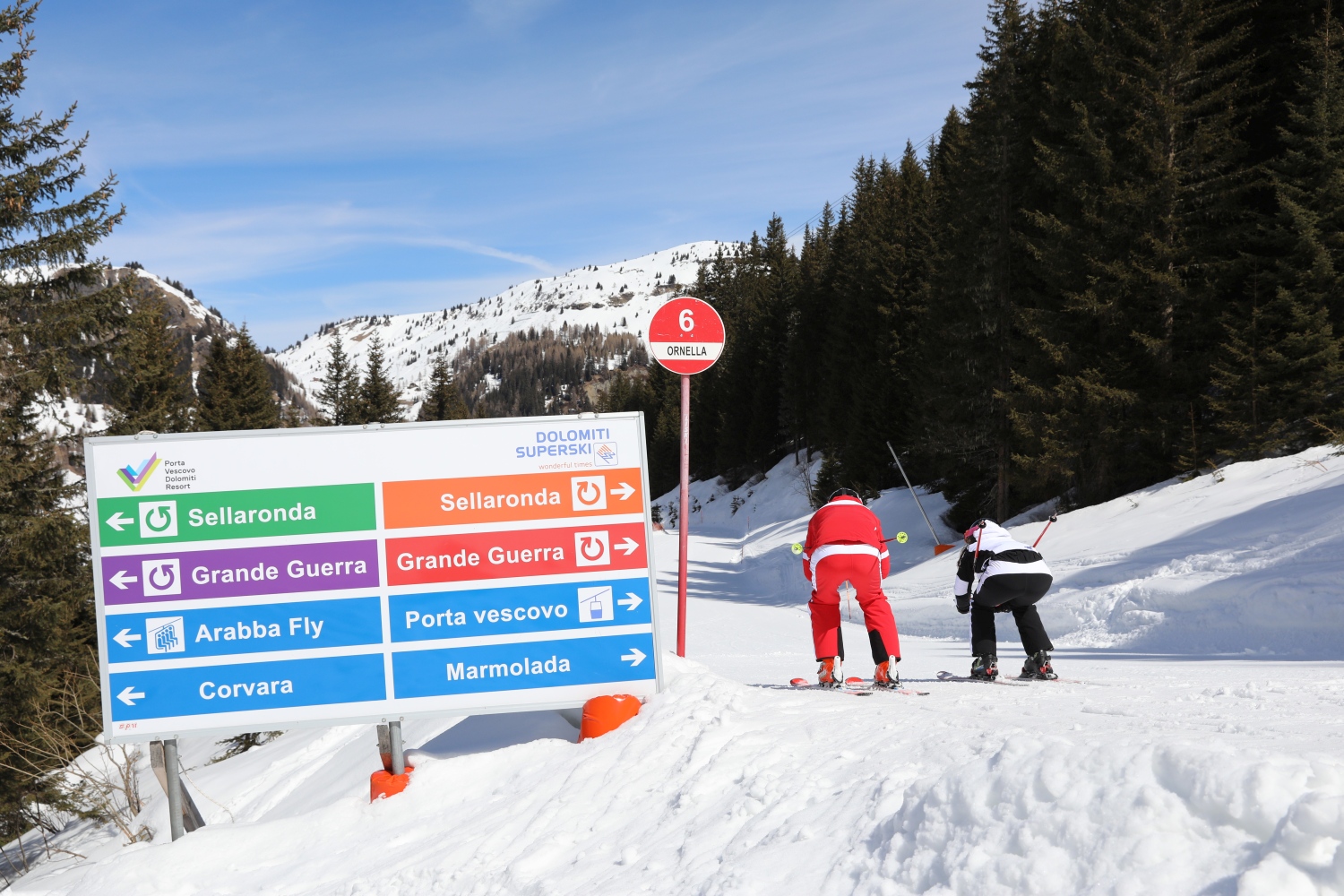
The fantastic Arabba-Marmolada ski area, plus the Dolomiti Superski area
Arabba is part of one of the world's largest ski areas, the Dolomiti Superski which covers 15 ski resorts and 1,200km of varied runs, and the local Arabba-Marmolada ski area offers snow enthusiasts 62km of well-groomed slopes, served by 26 modern ski lifts. All the main uplift cables and gondolas are easily reached on foot from every corner of the village.
As well as a network of challenging blue, red and black runs above the village, Arabba skiers can also make the trek across to the 3,343m Marmolada glacier for some glorious high-altitude glacier skiing.
But it is Arabba's location on the famous Sellaronda circuit that lifts it from a local ski area to a giant ski domain. The 40km circuit takes skiers clockwise or anti-clockwise around the Sella massif via four famous Ladin valleys - Alta Badia, Arabba, Val di Fassa and Val Gardena - and crossing over four mighty passes – Campolongo, Pordoi, Sella and Gardena. This circuit can be skied fast in 2-3 hours or savoured as a day trek with coffee stops and a lingering lunch at one of the superb mountain restaurants around the route. Moreover, the access the Sella Ronda gives to the other valleys provides almost endless opportunities for discovery and exploration.
Arabba is also a staging post on the 80km Great War ski tour which takes in the former battlefields, museums and artefacts of the Austro-Italian conflict during the First World War, and follows a route through the ice canyon (when open) below Malga Ciapela to the Civetta ski area, and with a leg or two by bus, up to Averau, down past the Cinque Torri and up the Lagazuoi cable car to ski the Hidden Valley down to Armentarola for a horse tow to San Cassiano in Alta Badia and then back to Arabba.
A Dolomiti Superski lift pass gives you unrivalled access to the interlinked ski areas that make up the Sellaronda, as well as the Armentarola & Great War Tour ski trails.
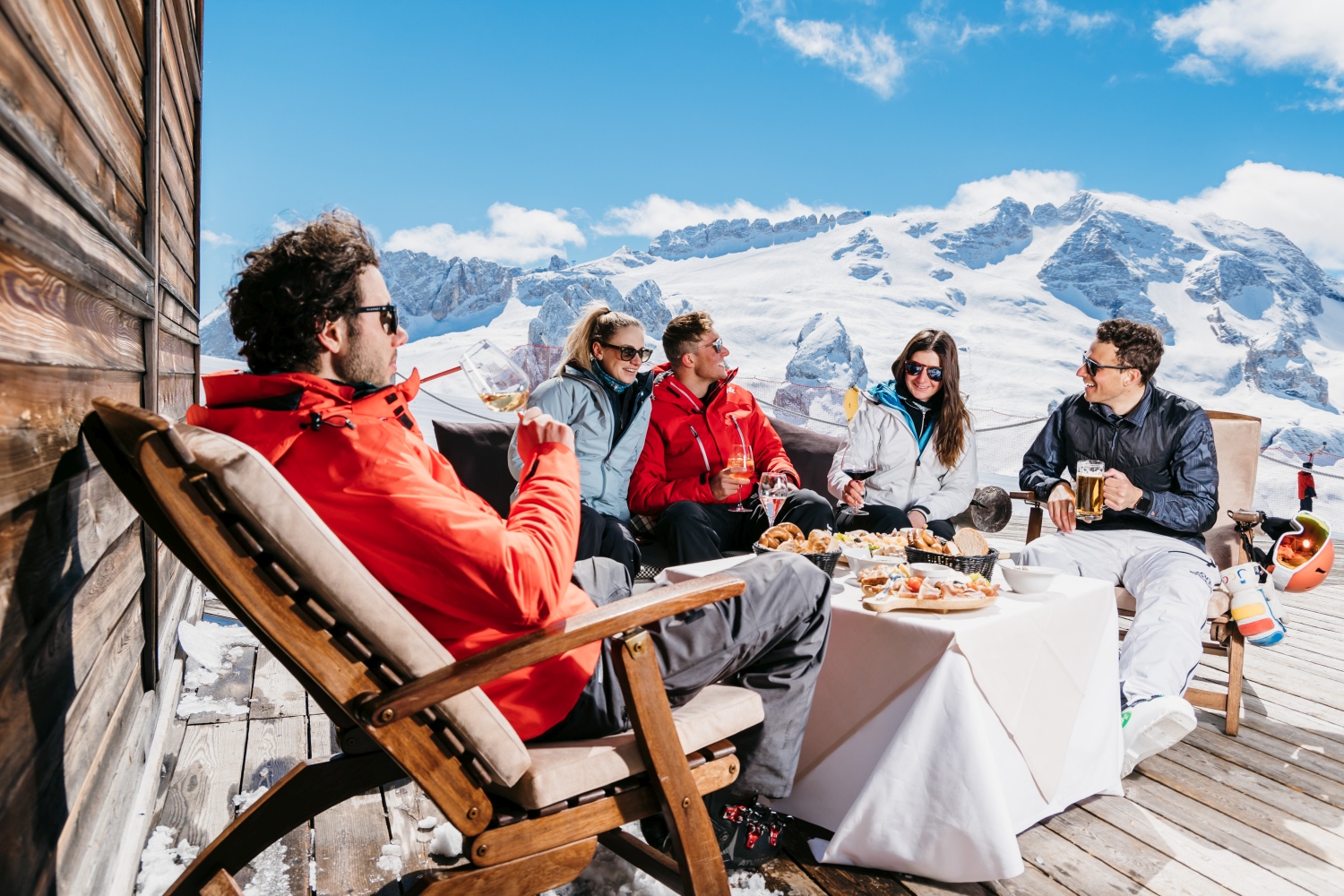
Wonderful places to stay and the famous Ladin hospitality
Ladin hospitality and accommodation offer guests, both in summer and winter, over 3,000 places and 200 establishments including hotels, restaurants and accommodation facilities: from wellness hotels to garnìs with a typically Alpine flavour, passing through residences, flats, farm holidays and rooms to let.
There is also no shortage of typical establishments lining the streets of the village and the valley, where you can be tempted by the aroma of sweets and home-made gastronomic specialities.
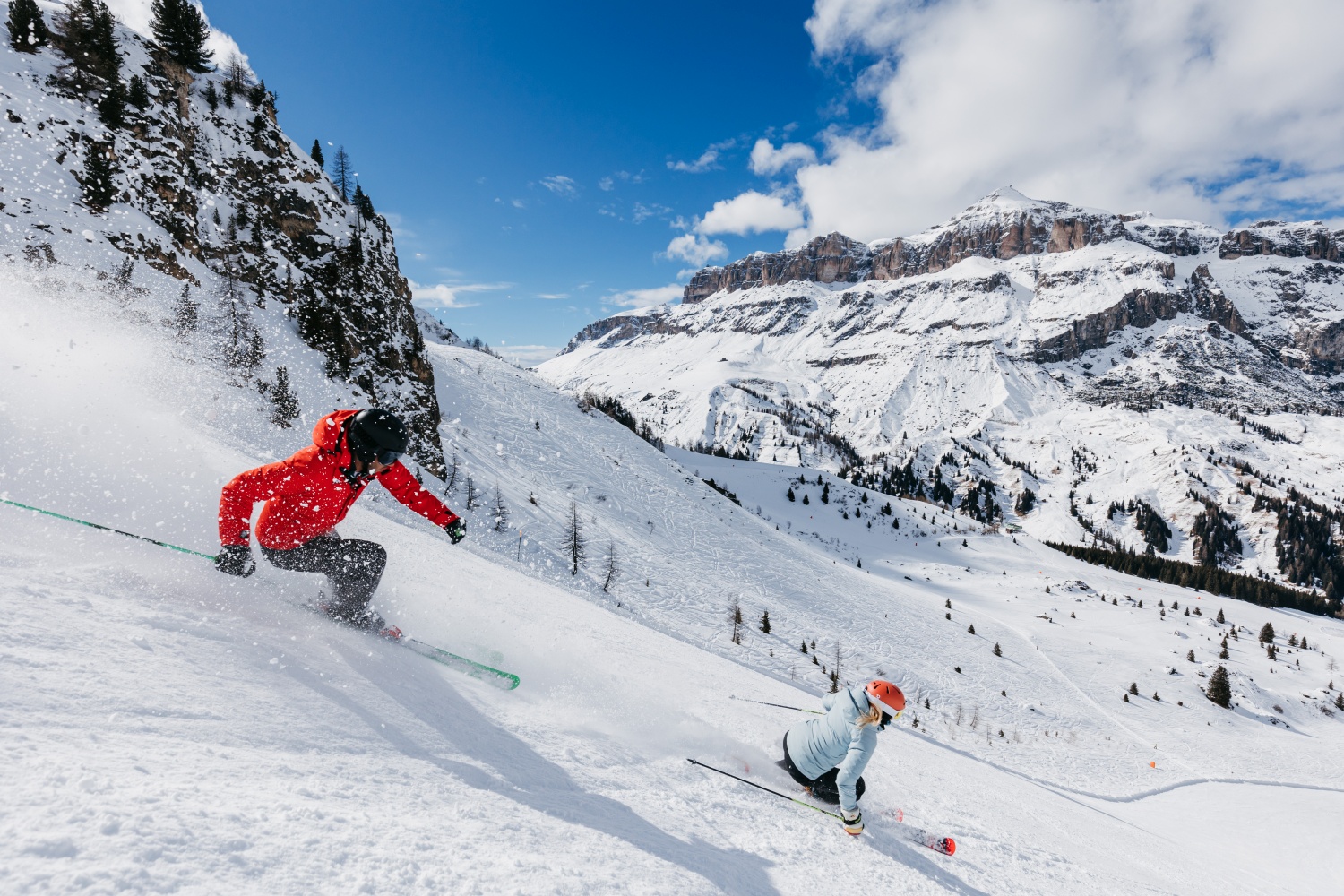
Real pistes for real skiers
Skiing is a serious business in Arabba, where advanced skiers can test their skills on no fewer than six adrenalin-fuelled, challenging runs.
Fodoma: Starting just below Porta Vescovo, this is one of the most technically difficult and spectacular slopes, recognised as one of the 10 most beautiful in the entire Dolomiti Superski. It's a north-facing snowsure piste 2.8km long with an average gradient of 30 per cent, a maximum of 56 per cent, with no counter slopes.
Sourasass: Known as the 'Black Pearl', this is a 3km-long niche slope much-loved by the most expert skiers, which starts next to Fodoma with seriously steep inclines in the open and then drops into the woods above the village, with maximum gradients of up to 45%.
Burz: The only black slope to be always in the sun throughout its 1km length, it was created in 1956 for the training of American and Canadian athletes before the Cortina Olympics.
Variante Ornella: Dropping down from the Pescoi gondola, this is a long and articulated wall, steep, with a constant and sustained slope that calls for very technical skiing.
Bellunese: The legendary glacier run - 12km long with more than 1,800m of altitude difference that from the 3,265m of altitude of Punta Rocca in Marmolada - leads down past the Rifugio Fedaia to the 1,450m cable station of Malga Ciapela, one of the longest and most spectacular descents in the Dolomites. Catch this one first thing, with no crowds and you'll be in ecstasy!
Belvedere 1: Coming down from the Belvedere peak above Passo Pordoi, this run is a track, defined by many as a 'super slope', which with its rough profile and excellent snow quality, makes the descent pleasant enough even without the breathtaking views across to the entire Sella massif.
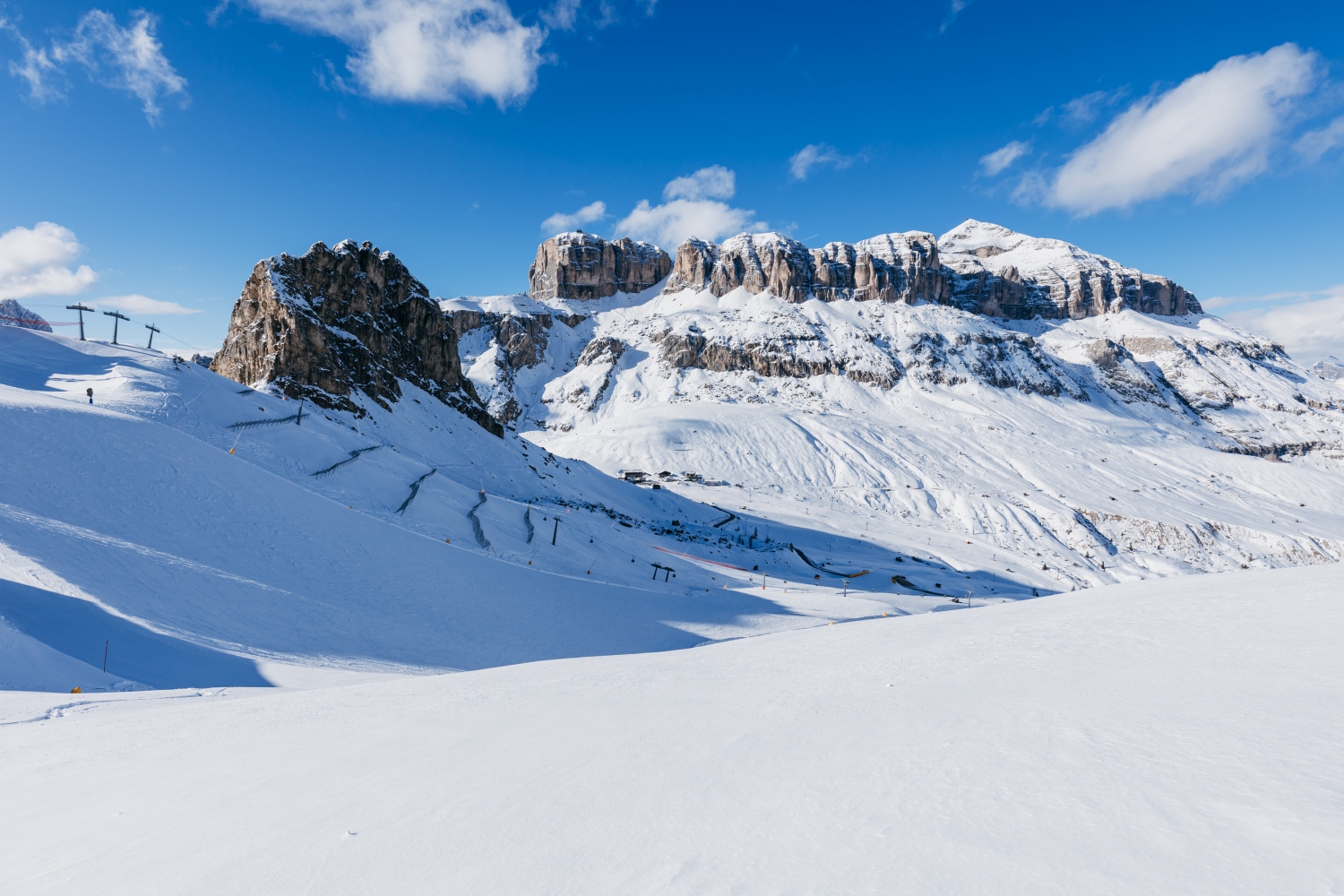
Ski off the beaten track
Away from the main ski slopes, there is also enjoyable freeride terrain. The Sella and Marmolada areas are renowned for the beautiful, entertaining, and long routes through fantastic fields of powdery snow. Arabba is the starting point for the most well-known off-piste routes, of which the Val de Mesdì is the most renowned. This route, for which you will need a guide, takes you through the Sella massif to Colfosco in the neighbouring Alta Badia ski area. It's 7km long, with a difference in height of 1,500m and offers a unique perspective of these famous mountains.
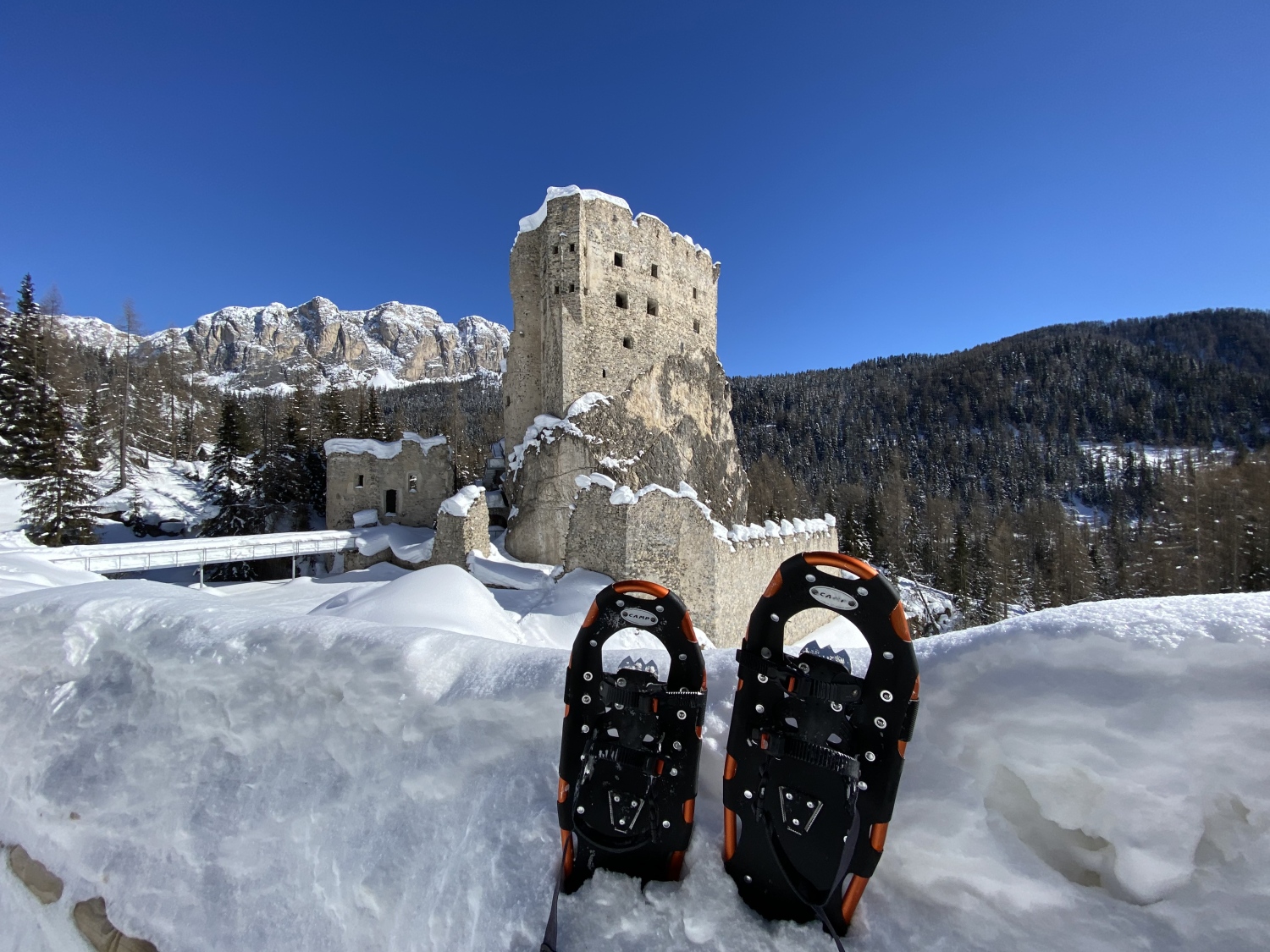
And not only skiing...
Arabba is also an ideal place for those who choose to experience snow in a slow manner and enjoy the mountains from other perspectives. Snowshoeing, for example, offers adventures off the beaten track on (marked) trails with a total immersion in nature, in the silence of snow-covered landscapes. Ciaspolare ai Pescoi, for example, is a new easy trail with three variants, with a maximum duration of one hour, which offers a unique view of the Sella Massif. Reaching it is very easy, just take the Pescoi cable car directly from Arabba.
Winter hikes are also a unique experience in the Dolomites. Accompanied by expert guides, you can cross frozen forests and valleys, admire the beauty of the landscapes and the tranquillity of the mountains in a way that few other activities allow. The hike to the Andraz Castle, the highest castle in Italy as well as the oldest in the Dolomites, is beautiful. In winter the snow makes everything more magical and the castle, imposing on its rocky spur, surrounded by forest and frozen streams, seems to have come straight out of a medieval fairy tale.
For more information about this outstanding resort, go to arabba.it




